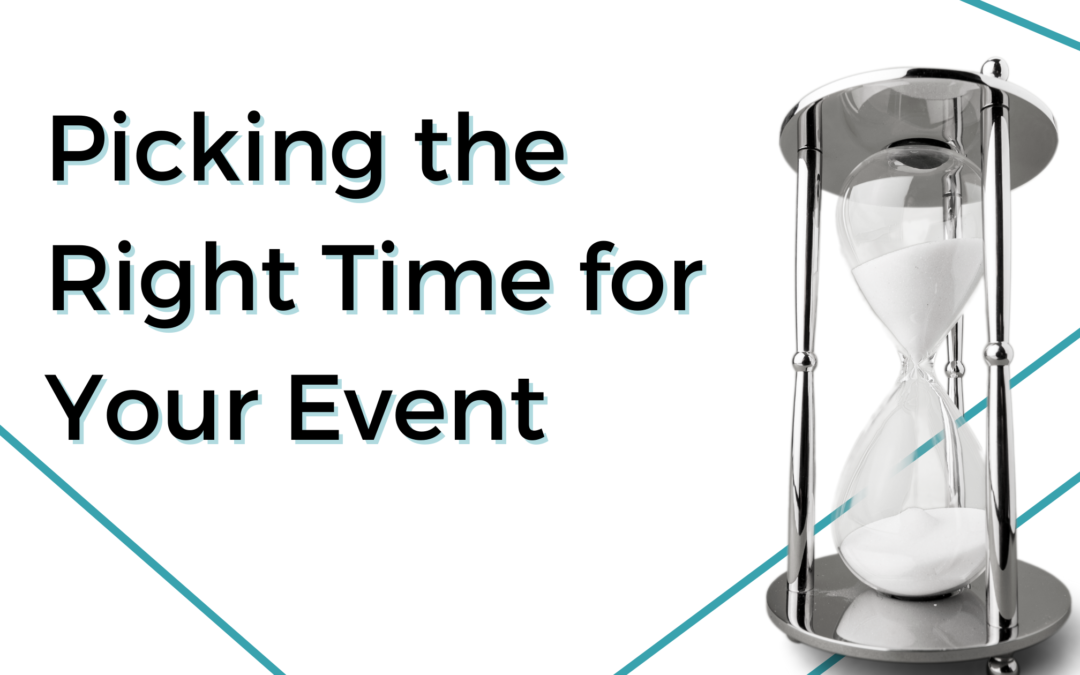The complaint that I hear from the sales people that I work with most often is that the events are never at the right time. I will tell you now, there is no perfect time for an event. Early in the year people worry about taxes and saving money. Spring brings on Graduations and other end of school year items along with a wanderlust for people to travel. Summer is a time for vacations and family. Fall is filled with football, back to school, and shortened days. Year end brings the Holidays – the worst time to hold a non-holiday event.
With all these obstacles, how do you choose when to host your event? Here are the questions that I ask to determine the optimal date and time.
Who is your audience?
Are you looking to reach business owners or stay at home moms with elementary age children? Narrow down who your perfect attendee is and then learn when they have the time. A business owner often likes lunch events or afternoon events ending at 6 pm. This allows them to still be a part of the family time. A mom, you may need to host an event around 9 pm or during school hours.
What else is happening at that time?
When you have narrowed down a date and time, look at what else is happening in that community. If you are looking to attract football fans, you don’t want to host an event during Monday Night Football – unless you are showing the game. Is there a big concert going on? A big television event? A political event? Know what your target audience would attend other than your event.
How far out do you need to plan the event?
Remember that people will need a few weeks to put an event on their calendar. I prefer to give attendees at least 3 weeks before the RSVP deadline and do at least 4 weeks of marketing. If you are planning a large fundraising gala, add in time to gather sponsors etc. Understand what your timeline is and what is the level of commitment from your target attendee? Are they traveling out of town? Do they need to get baby/pet sitters? Do you have a dress code that will require time to adhere to? The larger the level of commitment, the more notice you need to give attendees.
Lay this information out on a calendar and then pick the date and time that overlaps with the least amount of other events. Remember, no time is perfect but there is an optimal time.
You can also do some market research and host events at different times throughout the day and year to see what brings in the most interest. The biggest thing is to know your perfect attendee profile. This will allow you to answer when is the best time for your event.
One more tip – I would not rule out breakfast events – if they come with a good breakfast (not runny eggs and/or small, stale pastries.) Breakfast can actually be a less expensive meal to cater than lunch or dinner and allowing people to start early in the morning and then head on with their day can bring in a great crowd.

